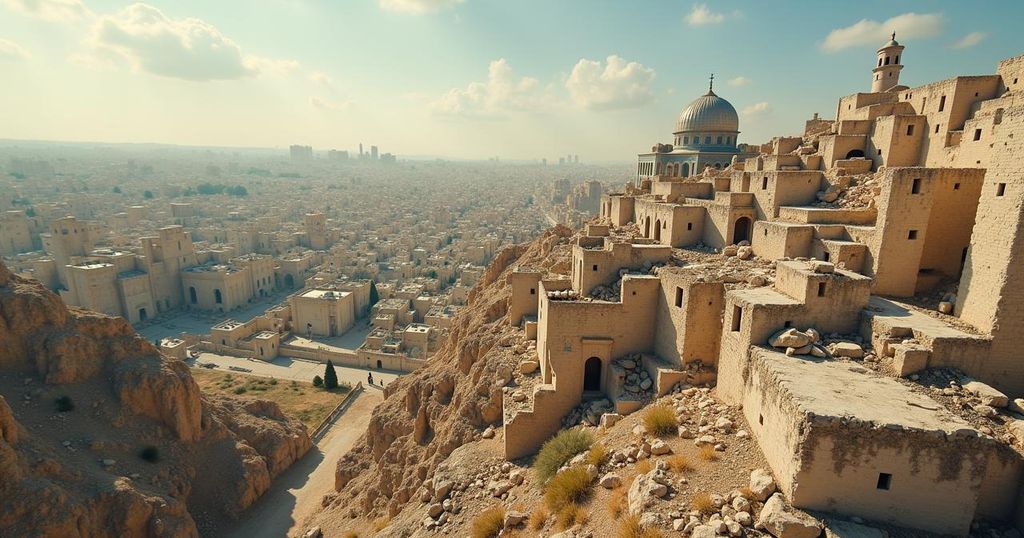The Intersection of Palestinian Liberation and Global Capitalist Structures

The article discusses how a liberated Palestine signifies a broader liberating force for the Middle East and poses a threat to global capitalism. It highlights the disproportionate ecological crises faced by the Global South, primarily caused by the imperial core’s exploitative practices. The need for economic democracy and sovereignty in the Global South is emphasized, as liberation struggles in these regions challenge dominant capitalist structures that rely on their subjugation. The discussion culminates in the assertion that local liberation movements are fundamental to addressing systemic inequalities and ecological crises tied to capitalist exploitation.
In discussing the implications of a liberated Palestine, one must first recognize that it symbolizes a liberating force for the entire Middle Eastern region, which in turn poses a significant threat to global capitalism. The existing structures of capitalism within core nations rely heavily on the subjugation and exploitation of the Global South. This dynamic exacerbates the ecological crisis, as it is predominantly the ruling classes of these imperial core countries that are responsible for disproportionate emissions contributing to climate change. Strikingly, those who have contributed the least to these ecological disruptions—largely populations in the Global South—bear the heaviest burdens of their consequences. The excessive appropriation of materials and resources from the Global South by core nations leads to environmental destruction that is frequently invisible within the more affluent areas. The socio-economic system in place prioritizes profit and capital accumulation over meeting basic human needs, thereby sustaining a paradox where vast productive capabilities coexist with widespread deprivation; a staggering 80% of the global population struggles to satisfy fundamental necessities. The apparent intractability of issues such as poverty and climate change stems from the organization of our productive capacities under a capitalist framework, as opposed to a system that prioritizes human and ecological welfare. Moreover, the fundamental problem lies in the lack of economic democracy. While political democracies allow for periodic selection of representatives, the economic landscape lacks a similar democratic foundation, resulting in the perpetuation of capitalist interests over collective human necessities. To confront these crises, the solution must lie in establishing economic democracy, granting communities the power to control production, set development goals, and ensure equitable distribution of resources. In the context of the Global South, a vital aspect of their liberation involves achieving economic sovereignty. The interplay of historical exploitation coupled with restrictive economic policies often imposed by powerful nations hinders the South’s ability to implement necessary reforms for ecological and economic stability. Therefore, achieving economic liberation in the Global South is crucial, albeit radically opposed to the interests of global capital, which historically benefits from cheap labor and resources. Recent conflicts, such as the ongoing situation in Palestine, illustrate this pattern, revealing that liberation movements threaten capitalist structures. Such movements are met with violent suppression, demonstrating that any significant challenge to the status quo in the Global South directly destabilizes the advantages held by the core nations. Consequently, it is imperative to recognize that the struggle for Palestinian liberation transcends moral implications; it is fundamentally about dismantling a system viewing such struggles as threats to its sustainability. Ultimately, we must visualize the global political economy through a lens that emphasizes interconnected struggles against imperialism and for economic democracy. These efforts collectively aim to uplift marginalized voices, redirect the flow of resources, and combat the ecological crisis rooted in capitalist exploitation.
The interplay of global capitalism and local struggles for liberation is a critical concern in contemporary socio-economic discourse. A well-established fact is that economic systems, particularly capitalism, have engendered significant socio-ecological crises, notably in the context of the Global South. The notion that ecological degradation disproportionately affects lower-income nations lays bare the systematic inequities perpetuated by imperial powers. Acknowledging the historical and ongoing struggles for sovereignty and self-determination in regions such as Palestine necessitates a comprehensive understanding of global capitalism’s structural underpinnings, the ecological impact of resource extraction, and the sociopolitical ramifications of such exploitation. The conversation surrounding economic liberation, self-determination, and ecological sustainability is central to reimagining a more just world.
In conclusion, the liberation of Palestine represents not only a local struggle for rights but also a fundamental challenge to the structures of global capitalism. The exploitation of the Global South, particularly in the context of ecological crises, underscores a deep-seated imbalance in the global political economy that prioritizes profit over human dignity and environmental sustainability. To address these profound challenges, establishing economic democracy and empowering local communities are essential steps towards achieving equity and justice. The battles against imperialism, exploitation, and ecological degradation are intrinsically linked, and a holistic approach to these issues is necessary for genuine global transformation.
Original Source: scheerpost.com






